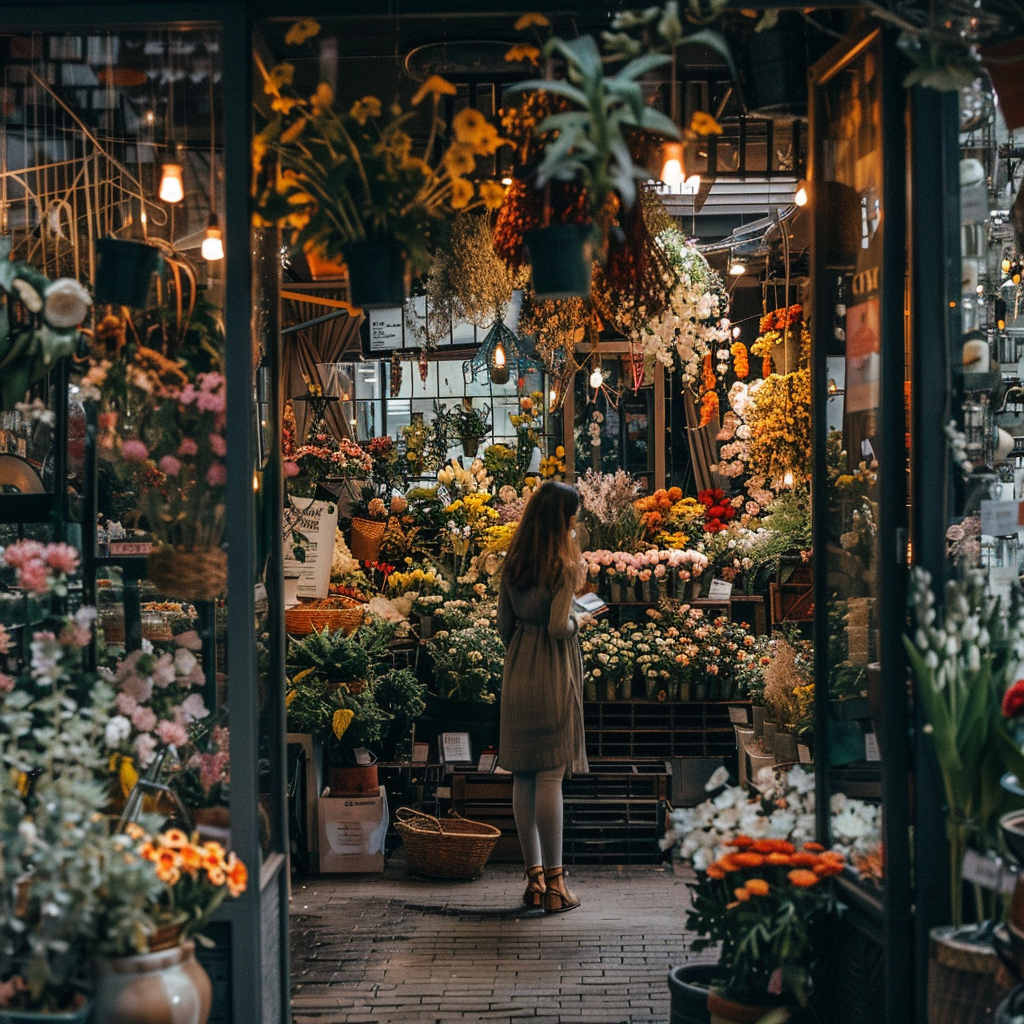his article explores the significance of using organic flowers in floral design, which not only reduces environmental impact but also improves client health. As consumers increasingly seek out eco-conscious options, the demand for organic flowers has surged, offering florists an opportunity to innovate while adhering to ethical practices. By understanding how to select and utilize these blooms effectively, florists can lead the charge in promoting a more sustainable and health-conscious approach to floral design.
Benefits of Organic Flowers in Floristry
In the enchanting realm of floristry, the allure of Organic Flowers unfurls like a delicate petal, weaving a tapestry of beauty and benevolence that transcends the confines of mere aesthetics. Beyond their captivating blooms and intoxicating fragrances, organic flowers emerge as champions of environmental stewardship and consumer well-being, ushering in a new era of sustainable elegance and conscious consumption.
At the heart of the floristry industry, the benefits of organic flowers are manifold, offering a sanctuary of purity and peace amidst a world of chemical-laden blooms. By eschewing harmful pesticides and synthetic chemicals, organic flowers safeguard the health and well-being of both florists and recipients, reducing the risk of toxin exposure and chemical sensitivities. This commitment to purity and safety resonates deeply with clients, who seek solace and sanctuary in the arms of nature’s bounty—a sanctuary that can only be found in the embrace of organic blooms.
Beyond their intrinsic beauty, organic flowers play a pivotal role in nurturing the health of the environment, serving as beacons of biodiversity and ecological resilience in an increasingly fragile world. Through organic cultivation practices that prioritize soil health, water conservation, and habitat preservation, growers help to support a vibrant tapestry of life that thrives in harmony with the land. This commitment to environmental stewardship not only benefits native flora and fauna but also ensures the long-term viability of the floristry industry, safeguarding its future for generations to come.
Choosing Eco-Friendly Flowers
In the delicate dance of floristry, the art of Choosing Eco-Friendly Flowers emerges as a symphony of sustainability and stewardship—a testament to the power of conscious consumption in shaping a greener, more harmonious world. At its heart lies the careful selection of blooms that not only captivate the senses but also honor the delicate balance of nature, embodying the ethos of environmental responsibility and ethical integrity.
When it comes to choosing eco-friendly flowers, discerning florists and consumers alike are guided by a constellation of certifications and labels that serve as beacons of authenticity and trust. Look for esteemed seals of approval such as the USDA Organic or Rainforest Alliance labels, which signify adherence to rigorous agricultural standards and practices. These certifications provide assurance that the flowers have been cultivated with care, free from harmful pesticides and chemicals that degrade soil health and threaten biodiversity. By aligning with certified growers and suppliers, florists uphold their commitment to sustainability and transparency, ensuring that every stem in their arrangements is a testament to ethical sourcing and environmental stewardship.
Moreover, in their quest for eco-friendly blooms, florists are increasingly turning to local organic farms as bastions of biodiversity and community resilience. By sourcing flowers from nearby growers, florists minimize the carbon footprint associated with long-distance transportation and support the vibrancy of local economies. This intimate connection to the land not only fosters a deeper appreciation for the beauty and bounty of regional flora but also strengthens the bonds of community and collaboration—a bond that transcends the confines of commerce and enriches the fabric of local culture.
Sustainable Floristry Techniques
In the intricate world of floristry, where creativity blooms alongside nature’s bounty, the adoption of Sustainable Floristry Techniques emerges as a testament to ingenuity and environmental stewardship—a delicate dance between artistry and ethics that elevates floral design to new heights of beauty and sustainability. At its core lies a reverence for the natural world and a commitment to honoring its delicate balance, weaving a tapestry of blooms that not only captivates the senses but also nurtures the earth from which they spring.
- Central to sustainable floristry is the thoughtful selection of materials that harmonize with nature’s rhythms, eschewing synthetic substances in favor of those that return to the earth with grace. By opting for biodegradable arranging materials such as moss, bamboo sticks, or natural twine, florists honor the cyclical nature of life, ensuring that each creation leaves no trace of ecological harm in its wake. This mindful approach to design not only minimizes waste but also fosters a deeper connection to the natural world, inviting both creator and beholder to contemplate the fleeting beauty of existence and the enduring legacy of sustainability.
- Moreover, sustainable floristry techniques extend beyond material selection to encompass the very essence of design itself, embracing principles of harmony, balance, and resourcefulness. Florists adept in the art of sustainability seek to minimize waste at every turn, perhaps by composting trimmings and floral waste or repurposing materials for future creations. By transforming what might otherwise be discarded into elements of beauty and vitality, these artisans demonstrate a profound respect for the inherent value of all living things—a respect that reverberates throughout their creations and resonates with those who behold them.
Practical Tips for Caring for Organic Flowers
In the delicate realm of floristry, where beauty blooms in every petal and stem, mastering the art of Caring for Organic Flowers is essential to preserving their natural splendor and vitality. With meticulous attention to detail and a commitment to eco-conscious practices, florists can ensure that every arrangement is a testament to both the beauty of nature and the artistry of sustainable living.
One of the first steps in caring for organic flowers is to create an optimal environment that mimics the cool, natural conditions in which they thrive. By storing flowers in a cool environment away from direct sunlight, florists can help to prolong their freshness and prevent premature wilting.
In addition to proper storage, the hydration needs of organic flowers must also be carefully considered. Using clean, purified water free from harmful chemicals or additives is essential for maintaining the health and vitality of the blooms. Florists may also consider incorporating natural preservatives such as lemon juice or vinegar into the water to inhibit bacterial growth and extend the lifespan of the flowers.
Furthermore, educating clients on how to care for their organic bouquets is paramount to ensuring their longevity and enjoyment. From regular water changes to stem trims, clients should be empowered with the knowledge and tools needed to preserve the beauty of their flowers for as long as possible. By sharing practical tips and insights into proper flower care, florists not only enhance the customer experience but also foster a deeper appreciation for the natural world and the sustainable practices that sustain it.
Also, we advise you to read our other article, where we talked about organic flowers.
FAQ
Organic flowers enhance environmental health and client safety by being grown without harmful pesticides and chemicals, reducing toxin exposure for florists and recipients.
Organic cultivation supports biodiversity, improves soil health, and minimizes water contamination, making it environmentally beneficial for the floristry industry.
Organic flower arrangements contribute to cleaner air and reduced risk of chemical sensitivities for clients, making them a preferred choice for hospitals, homes, and eco-friendly events where environmental and health concerns are prioritized.

